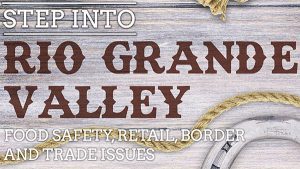It’s a good time to be Texas: since 2010, this has been the Lone Star State’s time to shine, as its ports—particularly the Hidalgo port system and the Pharr-Reynosa International Bridge—have continued to shine in trade with Mexico and several Central and South American countries.

Of course, this rise as a prime conduit for fresh produce imports has not been without its obstacles, and one of the most significant has been the uncertainly that swirled around the North American Free Trade Agreement or NAFTA.
While the agreement served as a battleground in President Trump’s ongoing trade wars, negotiations with Mexico and last-minute maneuvering with Canada resulted in the United States-Mexico-Canada Agreement (USMCA)—essentially a rebranding of NAFTA—it’s unclear what its ultimate effects will be.
A few things are certain, like the clause that USMCA will have to be renegotiated every six years, and most of its new provisions don’t kick in until 2020. The latter leaves businesses up in the air as to how some of its more critical provisions, such as rules about Mexican trucks crossing the border having to meet increased safety regulations, will impact their efforts.
Despite the ups and downs and changes and complications that have come to pass as the border for the Rio Grande Valley, our sources still found plenty of reasons to be content and yes, hopeful for the future.
“I think we’ll be able to ride out most of these changes if everything goes according to plan,” said Robert Diaz, director of operations at Fresh Imports International, LLC in Hidalgo
After a great deal of angst in the fresh produce industry over the potential demise of NAFTA, its replacement with the new USMCA has gone over largely without a hitch, and thus far, the most dire predictions about Trump’s border trade policies have not come to fruition.
Despite bad news on the climate front, a mild winter is being predicted for the region, and no severe weather crises have been predicted as of yet—always a serious concern, as major weather events have had a great effect on produce availability and price swings in recent years.
Automation and value-added packaging will likely continue to proliferate, adding to more consolidation along the border, which Jorge Vazquez, president of Houston’s Latin Specialties LLC, fears may cause a major thinning in the industry. Even with that on the horizon, he’s still optimistic.
“Although it’s currently demonized, our reliance on imported produce will continue to grow and will play a greater and greater role in our food supply,” Vazquez predicts. “This is not necessarily bad; it’s a wakeup call to all of us in the industry to do things right and step up our game.”
This is an excerpt from the most recent Produce Blueprints quarterly journal. Click here to read the full supplement.


